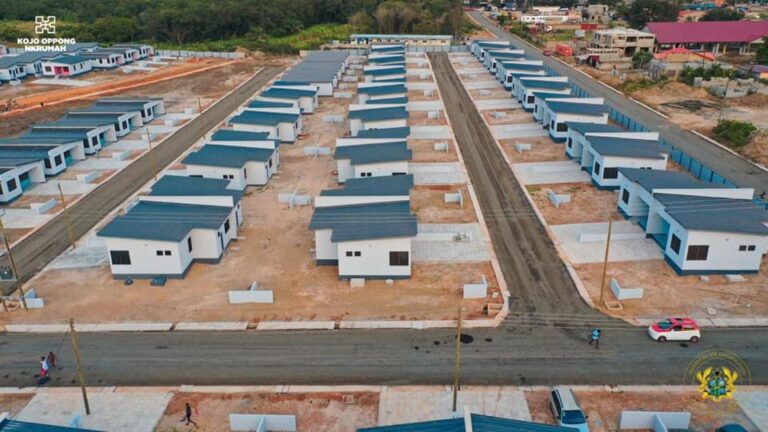The CEO of National Homeownership Fund, Prosper Hoetu, has appealed to financial institutions to help grow the mortgage market.
He made the point that a buoyant mortgage market will ensure more products are promoted tf more workers to access.
Speaking during a thought leadership forum on the theme ” Blueprint to Brick: Making Affordable Housing Work” organised by Media General on Tuesday, September 23, he said, financing is the main issue facing the housing sector.
“Help us grow the mortgage market. to promote competition so that different kinds of products can be promoted for Ghanaian workers to access,” Mr Hoetu said.
He noted that developers are looking for cheap resources to enable them to develop affordable housing.
To address the housing challenge, he said, there is a need for a statutory fund that will go into housing.
“Addressing the demand and supply requires financing, that is the bottom, the developer needs resources to invest in housing.”
“There must be some decicayted f8nds for that. We have failed significantly in doing that, providing social housing programmes targeting the vulnerable, we must deliberately, as a state, provide funding,” he added.
For his part, Professor of Architecture, Department of Architecture, at the Kwame Nkrumah University of Science and Technology (KNUST), S.O. Afram, urged city authorities to consider the needs of the poor when planning cities.
He explained that, for instance, the authorities are planning affordable housing in the cities, and they can take into consideration the needs of the poor by adopting the compound house concept, where the low-income earners can also afford.
“When we do planning for the city, we should also think about the poor,” Speaking during a thought leadership forum on the theme ” Blueprint to Brick: Making Affordable Housing Work” organised by Media General on Tuesday, September 23.
He further stated that the compound house is the best that we can use for low-income.
“There is security. always when you are there, there is somebody, so nobody can go and steal. If somebody steals, then it is a resident thief; they can get him,” he said.
Professor S.O. Afram further noted that the high cost of land is a major challenge affecting the housing sector in Ghana.
He noted that even when some people have the money, accessibility becomes a challenge.
“Land cost and accessibility, you can’t even get the land in Accra and when you get you pay more.”
The Minister of Works and Housing, Kenneth Gilbert Adjei, assured Ghanaians that the Mahama administration is determined to address the housing deficit challenge in Ghana.
He says a number of measures have been introduced as part of the reset agenda by the government to resolve the housing challenge.
It is recalled that President Mahama announced plans to launch a Low-Cost Housing Project aimed at addressing the accommodation needs of government and public sector workers. The initiative forms part of a broader agenda to promote affordable housing, improve living standards,
Speaking during a thought leadership forum on the theme ” Blueprint to Brick: Making Affordable Housing Work” organised by Media General. On Tuesday, September 23, the Minister said that the housing needs of Ghanaians require urgent, collective action to resolve.
He assured that the Mahama administration is determined to work on affordable Housing for all Ghanaians
The Housing deficit requires “Innovative and sustainable solutions,” he said
“Housing urgent and collective action. Under the situation, Mahama administration is prioritising the development of affordable, low-cost housing. Every Ghanaian deserves a safe, decent home. I am confident that with concerted effort, President Mahama will turn this vision into reality for Ghanaians,” he said.
He further stated that the government has outlined a number of measures to address the housing challenge.
“We have introduced a number of measures to address the housing challenges,” he said.
The measures, including the security services housing programme, the national rental assistance scheme, focus on a pragmatic approach to close the affordability gap and reduce the deficit.


